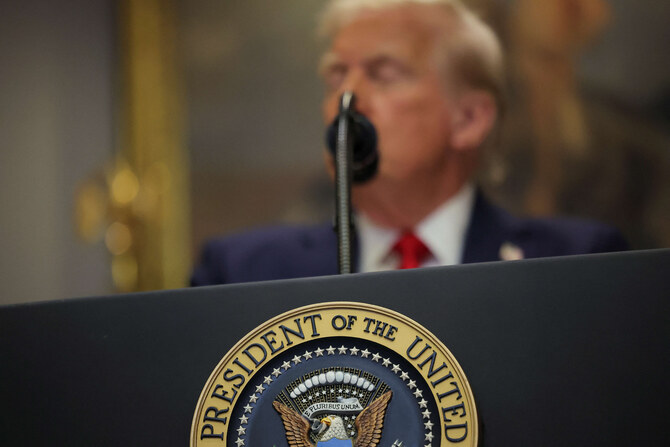JEDDAH: Saudi Arabia’s project developer Qiddiya Investment Co. has awarded a Spanish consortium an SR4 billion ($1 billion) contract for the Prince Mohammed bin Salman Stadium initiative.
The agreement was granted to the company FCC Construction and the Kingdom’s leading contracting firm Nesma & Partners for the building of the sports facility at the project on the outskirts of Riyadh.
With the US-based architect Populous as the undertakings consultant, the contract covers the construction of a multipurpose stadium on top of the 200-meter-high Tuwaiq cliff in the new sports and entertainment district within the city, according to media outlet MEED.
In July, Saudi Arabia submitted its official bid to host the 2034 FIFA World Cup at a ceremony organized by the Federation Internationale de Football Association, known as FIFA, in Paris, France. The official announcement of the host nation for the tournament will be made on Dec. 11.
The new project marks a significant milestone in the realization of Vision 2030, aimed at enhancing tourism, generating thousands of jobs, boosting the national economy, and increasing annual visitors to the Kingdom by 1.8 million football fans and an additional six million drawn to non-football events.
The stadium’s design allows for multipurpose use, with the entire pitch capable of being transformed within hours to host various sporting and entertainment events, including rugby, boxing, and mixed martial arts, as well as esports championships, exhibitions, and concerts.
The facility will be built in the heart of Qiddiya, just 40 minutes from Riyadh, atop one of Tuwaiq Mountain’s peaks at an elevation of 200 meters, according to the Saudi Press Agency.
With a seating capacity of over 45,000, it is expected to attract international visitors with its innovative design and unique technological offerings, creating an immersive experience for guests.
Among its features are retractable flooring, a foldable roof, and a movable upper wall that can open, revealing views of the lower city, home to key attractions like Six Flags Qiddiya and the water park.
The sports facility’s exterior frame, selected interior walls, and roof will also be covered with 1.5 km display screens.
A standout feature of the stadium is its advanced climate control system, which will enable year-round events without excessive energy consumption. This will be achieved through an eco-friendly cooling lake located beneath the stadium, where rainwater collected from the surrounding area will be pumped into an ice wall to cool the air entering the central conditioning system.
Earlier in 2024, the investment company announced the launch of the stadium, which is set to be one of the world’s most prominent.
The announcement followed Crown Prince Mohammed bin Salman’s unveiling of Qiddiya’s urban master plan and global brand, positioning it to become a leading destination for entertainment, sports, and culture globally.



























